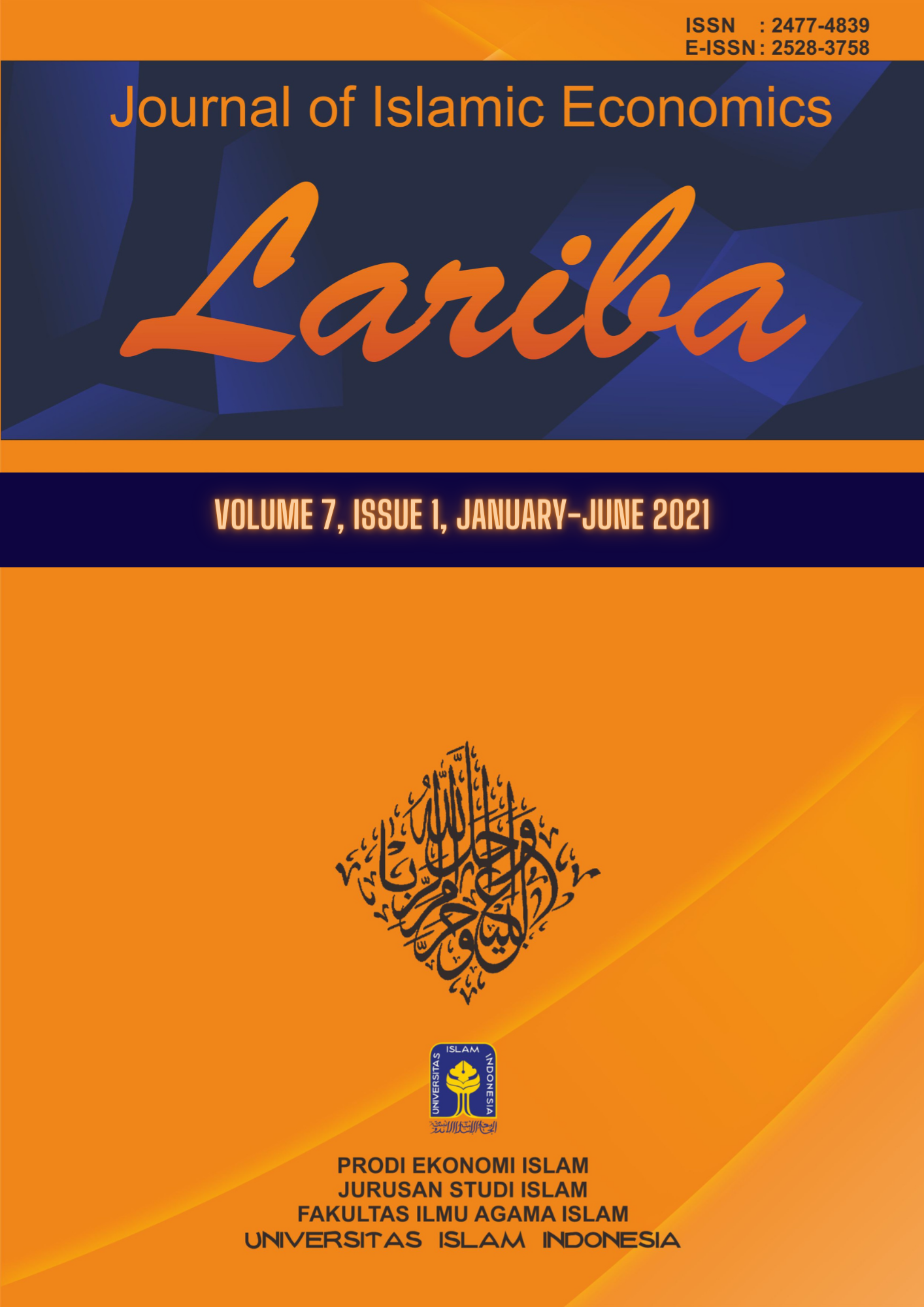Main Article Content
Abstract
This paper aims to qualitatively examine the reasons for the insecurity of sharia bank implementation. The study uses descriptive methods of analytics using databases published by Sharia Banks on their web sites. This study concludes that the definition of an akad in Law no. 21/2008 does not conform to the definition of MUI’s fatwa, the use of Wadiah and Mudharabah agreements for funding are potentially dholim. Murabahah financing products are potentially haram, Musyarakah application is not appropriate, Ijarah has the potential to violate fiqh; Ijarah Muntahiyya Bi Al Tamlik provides uncertainness for customers. This paper suggests regulators to change the definition of an akad in Law no. 21/2008, Sharia Bank does not use akad wadiah in funding activities, makes adjustments to mudharabah's share of profit, improves murabahah procedures and pricing, and MUI amends Fatwa no. 27/2002.
Article Details
Authors who publish with this journal agree to the following terms:
- Authors retain copyright and grant the journal right of first publication with the work simultaneously licensed under a Creative Commons Attribution License that allows others to share the work with an acknowledgement of the work's authorship and initial publication in this journal.
- Authors are able to enter into separate, additional contractual arrangements for the non-exclusive distribution of the journal's published version of the work (e.g., post it to an institutional repository or publish it in a book), with an acknowledgement of its initial publication in this journal.
- Authors are permitted and encouraged to post their work online (e.g., in institutional repositories or on their website) prior to and during the submission process, as it can lead to productive exchanges, as well as earlier and greater citation of published work (See The Effect of Open Access).




